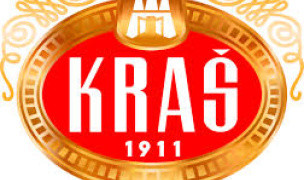 23 Terms
23 TermsHome > Terms > English (EN) > cookbooks and cooking media
cookbooks and cooking media
Up to 1,000 cookbooks were published annually in the US in the late twentieth century.
Such proliferation represents not only a diversity of audiences and tastes, but also a recognition of cooking as cultural capital (for the middle class), as well as a realm in which domestic knowledge has given way to outside mass-mediated expertise.
Cookbooks, cooking television and other media, like food itself, thus embody critical changes in American society and culture.
This can be seen by successive editions of the classic Joy of Cooking (1931) created by Irma Rombauer. Unlike the equally popular Better Homes and Garden Cookbook (first published 1930; multiple re-editions), linked to a publishing empire, or the Betty Crocker Cookbook (1950; multiple re-editions) of food manufacturer General Mills, this was an individual effort, originally self-published. Early editions met the needs of a world where domestic service was disappearing. Collecting recipes from friends and additional information that now seems dated in its reliance on canned soups or overcooked pasta, Rombauer later adapted easily followed recipes to new conditions like wartime rationing.
This tradition of change was continued by her daughter and her grandson, who produced the new 1997 edition. This last comprehensive volume—which ranges from beating eggs to comparing caviars—takes into account sophisticated palates and distinctions between newly available ingredients, global cuisines, health concerns and family dynamics that make pizza a meal category Joy of Cooking emerged in a relatively limited market. Postwar prosperity and nuclear family domesticity changed the needs and markets for cooking guidance. Magazines and the press also taught cooking (including published collections from food editors like the New York Times’ Craig Clairborne). Television food shows also appeared with the earliest stations, incorporating cooking teachers like Dionne Lucas and showman cooks like James Beard, who linked his recipes to commercial endorsements as well as cookbooks. Julia Childs’ inimitable PBS French Chef (1963–73), with sequels, set new standards in cookbooks and television for generations to come, re-establishing food and an acceptance of kitchen mistakes that French cuisine as a goal, yet doing so with a love of demystified haute cuisine. Her success was followed by other PBS shows and a cable food channel, again often linked to cookbook sales and celebrities.
Meanwhile, advertisers supplied recipes to enhance sales and create new uses for their products, from gelatin to cream cheese to soup. This onslaught for the food consumer increased with new machines—pressure cookers to microwaves to breadmakers—that altered the American kitchen. Some products, in fact, became identified with specific recipes: Nestle’s chocolate chips and Toll House cookies or Chex cereals and snack mixes.
Other cookbooks have expanded with affluence and leisure, as well as exposure to new immigrants and travel. Prominent among cookbook categories and television shows are those that champion cuisines of Italy France and Asia, as well as domestic regional/ethnic specializations like Cajun, Southwestern or soul food. Celebrity chefs become multimedia institutions with restaurants (chains), cookbooks, shows and guest appearances. Other writers incorporate the ethnography of food into their writings, like Paula Wolfert on the circum-Mediterranean or Marcella Hazan on Italy. Newspaper sections and magazines targeting affluent consumers—Saveur, Food and Wine, Gourmet—also combine narrative, pictorials and recipes. Often, these make demands on time and ingredients that set the process and results of cooking apart from everyday eating, reinforcing its cultural capital in the middle class. Other cookbooks meet specialized interests and needs, whether in preparation categories—basic, grilling, baking, speedy etc.—or nutrition and diet, featuring light, low-fat and salt-free foods.
Clubs, schools, churches and other groups also elaborate community through cookbooks and cookbook sales. Folklorists and anthropologists have examined these food ways and contributed celebrations and collections patronized by institutions like the Smithsonian. Indeed, these complexities of community and change permeate media that permit cooking for status or raise questions of identity embodied in Jeff Smith’s wry subtitle on his The Frugal Gourmet on Our Immigrant Ancestors (1990): “Recipes you should have gotten from your grandmother.”
- Part of Speech: noun
- Synonym(s):
- Blossary:
- Industry/Domain: Culture
- Category: American culture
- Company: Routledge
- Product:
- Acronym-Abbreviation:
Other Languages:
Member comments
Terms in the News
Billy Morgan
Sports; Snowboarding
The British snowboarder Billy Morgan has landed the sport’s first ever 1800 quadruple cork. The rider, who represented Great Britain in the 2014 Winter Olympics in Sochi, was in Livigno, Italy, when he achieved the man-oeuvre. It involves flipping four times, while body also spins with five complete rotations on a sideways or downward-facing axis. The trick ...
Marzieh Afkham
Broadcasting & receiving; News
Marzieh Afkham, who is the country’s first foreign ministry spokeswoman, will head a mission in east Asia, the state news agency reported. It is not clear to which country she will be posted as her appointment has yet to be announced officially. Afkham will only be the second female ambassador Iran has had. Under the last shah’s rule, Mehrangiz Dolatshahi, a ...
Weekly Packet
Language; Online services; Slang; Internet
Weekly Packet or "Paquete Semanal" as it is known in Cuba is a term used by Cubans to describe the information that is gathered from the internet outside of Cuba and saved onto hard drives to be transported into Cuba itself. Weekly Packets are then sold to Cuban's without internet access, allowing them to obtain information just days - and sometimes hours - after it ...
Asian Infrastructure Investment Bank (AIIB)
Banking; Investment banking
The Asian Infrastructure Investment Bank (AIIB) is an international financial institution established to address the need in Asia for infrastructure development. According to the Asian Development Bank, Asia needs $800 billion each year for roads, ports, power plants or other infrastructure projects before 2020. Originally proposed by China in 2013, a signing ...
Spartan
Online services; Internet
Spartan is the codename given to the new Microsoft Windows 10 browser that will replace Microsoft Windows Internet Explorer. The new browser will be built from the ground up and disregard any code from the IE platform. It has a new rendering engine that is built to be compatible with how the web is written today. The name Spartan is named after the ...
Featured Terms
Hetoimasia
The Hetoimasia, Etimasia (Greek ἑτοιμασία, "preparation"), prepared throne, Preparation of the Throne, ready throne or Throne of the ...
Contributor
Featured blossaries
Browers Terms By Category
- Hair salons(194)
- Laundry facilities(15)
- Vetinary care(12)
- Death care products(3)
- Gyms(1)
- Portrait photography(1)
Consumer services(226) Terms
- General boating(783)
- Sailboat(137)
- Yacht(26)
Boat(946) Terms
- Biochemistry(4818)
- Molecular biology(4701)
- Microbiology(1476)
- Ecology(1425)
- Toxicology(1415)
- Cell biology(1236)
Biology(22133) Terms
- Natural gas(4949)
- Coal(2541)
- Petrol(2335)
- Energy efficiency(1411)
- Nuclear energy(565)
- Energy trade(526)
Energy(14403) Terms
- Cultural anthropology(1621)
- Physical anthropology(599)
- Mythology(231)
- Applied anthropology(11)
- Archaeology(6)
- Ethnology(2)





